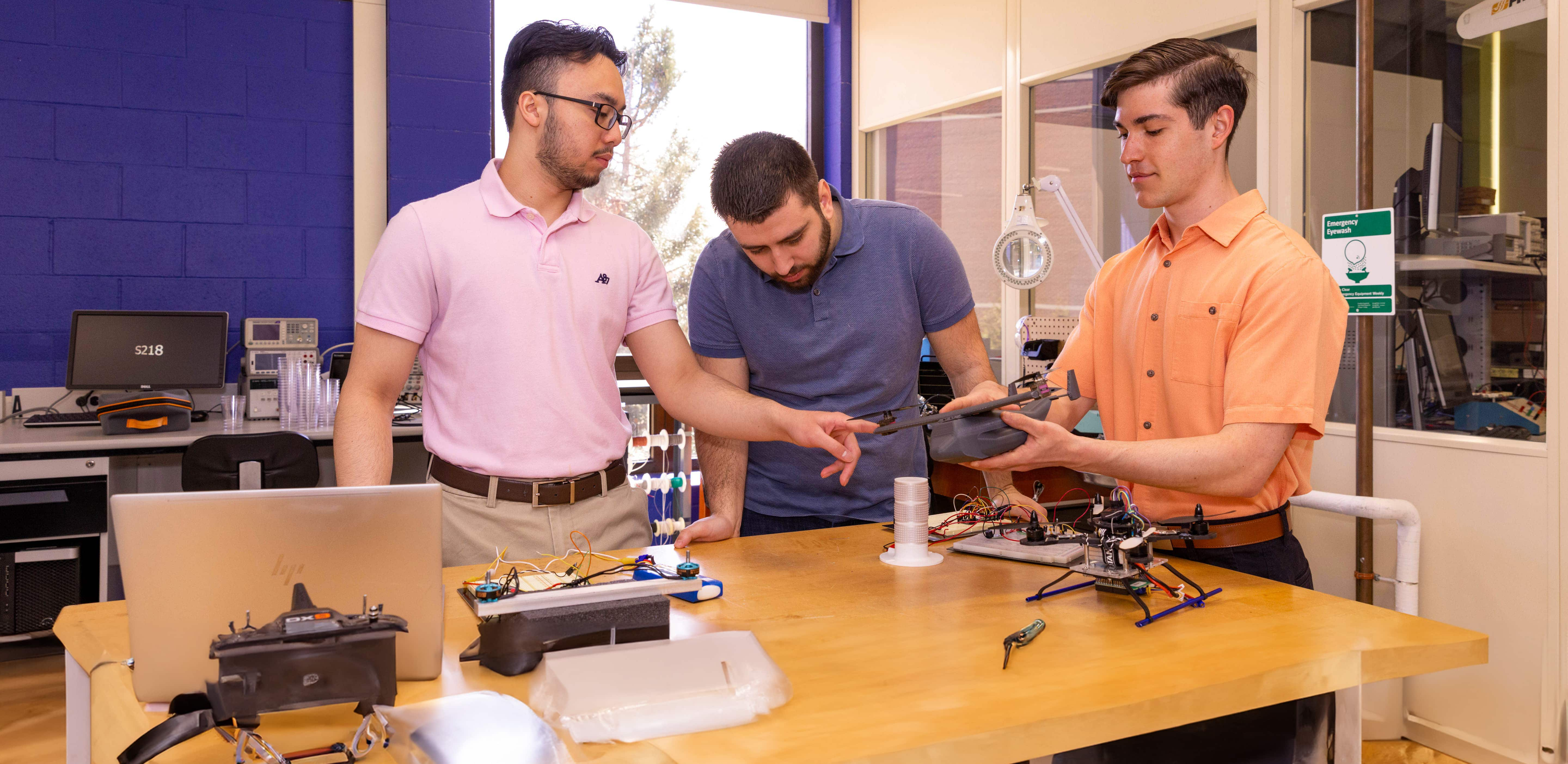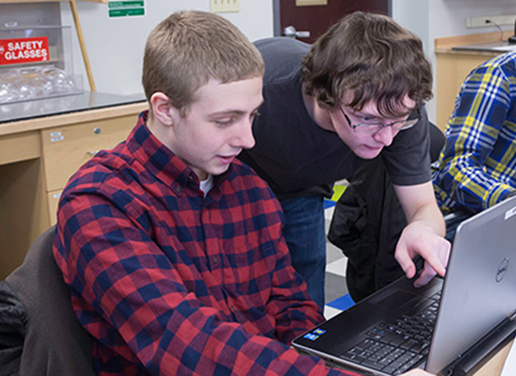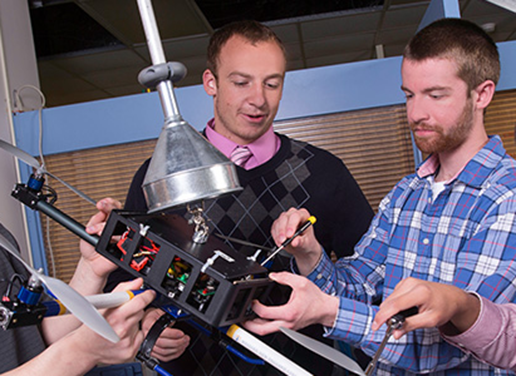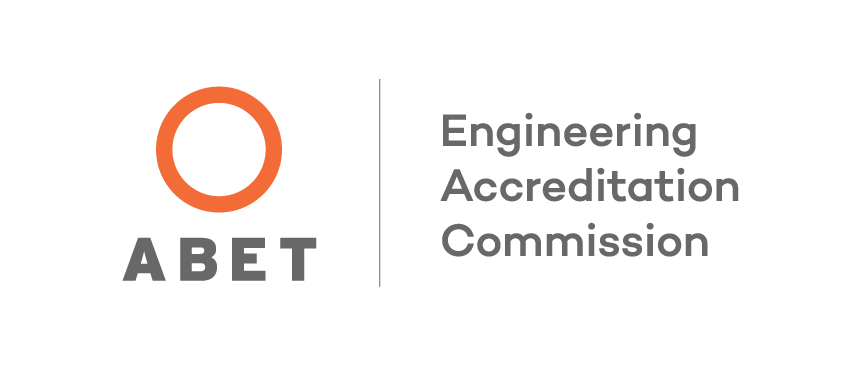Powering the Future
Do you want to transform the way our world is automated? The modern world increasingly relies on electronics and technology to power and automate our day-to-day lives, and electrical engineers are at the forefront of making this happen. Electrical engineers are in demand in all types of private and public enterprises, and in this program, you’ll obtain the skills to work in critical industries. Whether it is collaborating with students and faculty on research or designing a new product, you’ll have the opportunity to develop industry advances even before you graduate.
Why Choose Electrical Engineering?
Electrical engineers are at the forefront of the technological revolution. They develop, design, and embed the devices that power our world and add value to today’s products through their expertise in electronics. There are a myriad of emerging trends that touch the consumer in their everyday lives. These technologies are found in the medical field, avionics, robotics, automotive, defense and security, and energy and power. In the communications area, electrical engineering has successfully made the world a whole lot smaller through use of mobile devices, wireless connectivity, and the Internet for global access and entrepreneurship.






